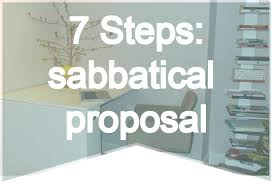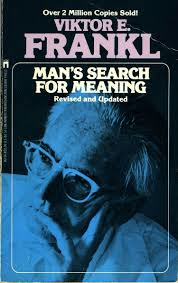It is unsettling, even scary, to relinquish who we think we are, and scary to stop clinging to what we have and what we do. Henri Nouwen
As I picked up my bag to walk to the gym, then to the office for a few hours of work, I said “I’m off to justify my existence for the day!” The idea of such daily justification comes from my father who, when he was at home rather than on the road travelling, used to ask my brother and me as we stepped into the house after school  “What did you do today to justify your existence on this planet?” He always had a smile on his face when he said it, but there were serious undertones to the question. The challenge to not just be a piece of furniture in the room, not just to occupy space, but to prove my worth on a daily basis has stuck with me ever since. Jeanne’s response to my announcement was to laugh and say “You don’t have to do anything to justify your existence!” I appreciate the sentiment, but I’m not so sure.
“What did you do today to justify your existence on this planet?” He always had a smile on his face when he said it, but there were serious undertones to the question. The challenge to not just be a piece of furniture in the room, not just to occupy space, but to prove my worth on a daily basis has stuck with me ever since. Jeanne’s response to my announcement was to laugh and say “You don’t have to do anything to justify your existence!” I appreciate the sentiment, but I’m not so sure.
I can talk a good talk about why, despite the Protestant work ethic and stereotypical American focus on action and productivity that pervades our culture, who one is does not amount to the same thing as what one does.  As Joan Chittister writes, humility is “the strength to separate our sense of the meaning of life from what we do.” One should work to live, after all, not live to work. I am not, however, nearly as good at walking the walk. This has become more and more obvious as I move into sabbatical mode. Within a month I will no longer be a program director, something that has consumed me as a second full-time job for the past four years. I will not be a full-time teacher for the next sixteen months, uncharted territory for someone who believes he was born to be a professor. I’ve been telling everyone who would listen for several years that the biggest thing that being an administrator, first four years as department chair, then four more as a program director, has taken away from me is writing. But this is not entirely true. I actually have been writing a lot over the past almost-three-years on this blog—close to 300,000 words worth of writing (enough for three 250-or-so page books). What I have not done for close to a decade is academic writing of the sort that an academic must do in order to get promoted and tenured. Why? Because I don’t have to. Nor do I want to.
As Joan Chittister writes, humility is “the strength to separate our sense of the meaning of life from what we do.” One should work to live, after all, not live to work. I am not, however, nearly as good at walking the walk. This has become more and more obvious as I move into sabbatical mode. Within a month I will no longer be a program director, something that has consumed me as a second full-time job for the past four years. I will not be a full-time teacher for the next sixteen months, uncharted territory for someone who believes he was born to be a professor. I’ve been telling everyone who would listen for several years that the biggest thing that being an administrator, first four years as department chair, then four more as a program director, has taken away from me is writing. But this is not entirely true. I actually have been writing a lot over the past almost-three-years on this blog—close to 300,000 words worth of writing (enough for three 250-or-so page books). What I have not done for close to a decade is academic writing of the sort that an academic must do in order to get promoted and tenured. Why? Because I don’t have to. Nor do I want to. ![]() Tenure and the last promotion came a long time ago, well before the last decade of administration piled on top of teaching. I no longer need to write and publish the sort of thing that one needs to write and publish in order to earn tenure and promotion, and this is a good thing since I don’t want to write that sort of thing and haven’t wanted to for some time.
Tenure and the last promotion came a long time ago, well before the last decade of administration piled on top of teaching. I no longer need to write and publish the sort of thing that one needs to write and publish in order to earn tenure and promotion, and this is a good thing since I don’t want to write that sort of thing and haven’t wanted to for some time.
What this means, going into sabbatical, is that for the first time in my professional life—actually for the first time in my adult life—the pressure is off. I’m being paid to be on sabbatical—undoubtedly a rare gift pretty much exclusive to the world of academia. And I’m not sure how to handle that. Over the past few years I have taken baby steps in the direction of trusting the world around me to show me what’s next rather than imposing my own expectations and structures on what’s next.  But they are only baby steps, insufficient to guide my plans for sabbatical. Beginning around this time last year I started planning for sabbatical by doing the usual things—setting up a series of appointments with our very helpful director of sponsored research, sending out proposals both for residential and non-residential sabbatical projects, and so on. For several months in late 2014 I waited to see what I would be doing and where I would be going on sabbatical. The response to all of my proposals? “Thanks, but no thanks.” Other than the lovely form rejection letters in various forms, I received no feedback other than “we don’t want to fund you doing that.” By the time the rejections arrived the spring semester had started, so other than a few “what the fuck??” moments, I didn’t have the time to think much about the implications until the past couple of weeks. I have plenty to work on and write about—three book projects, no less—but the usual routes to where that will happen and when have been dead ends. Now what?
But they are only baby steps, insufficient to guide my plans for sabbatical. Beginning around this time last year I started planning for sabbatical by doing the usual things—setting up a series of appointments with our very helpful director of sponsored research, sending out proposals both for residential and non-residential sabbatical projects, and so on. For several months in late 2014 I waited to see what I would be doing and where I would be going on sabbatical. The response to all of my proposals? “Thanks, but no thanks.” Other than the lovely form rejection letters in various forms, I received no feedback other than “we don’t want to fund you doing that.” By the time the rejections arrived the spring semester had started, so other than a few “what the fuck??” moments, I didn’t have the time to think much about the implications until the past couple of weeks. I have plenty to work on and write about—three book projects, no less—but the usual routes to where that will happen and when have been dead ends. Now what?
 I was lector yesterday morning at church for the first time in months, and in one of those unexpected moments of synchronicity that I’ve noticed more and more frequently over the past several years my assigned Old Testament reading was one of my favorites from the Jewish scriptures, the call of Isaiah. As I read it from the lectern the story had immediate resonance. Isaiah has a vision of the divine throne room, where six-winged seraphim fly about and cry “Holy, holy, holy!” 24/7. After Isaiah expresses his utter unworthiness at being present for such a glorious spectacle, an angel takes a live coal with tongs from the altar and, laying it on Isaiah’s lips, says “Now that this has touched your lips, your guilt has departed and your sin is blotted out.” Now you are ready, in other words. God itself asks “Whom shall I send, and who will go for us?” Isaiah answers, “Here am I; send me.” A risky thing to do, opening oneself up to whatever might come. Isaiah’s mission starts by saying “I’m ready for whatever.” Scary business, but I’ll give it a shot.
I was lector yesterday morning at church for the first time in months, and in one of those unexpected moments of synchronicity that I’ve noticed more and more frequently over the past several years my assigned Old Testament reading was one of my favorites from the Jewish scriptures, the call of Isaiah. As I read it from the lectern the story had immediate resonance. Isaiah has a vision of the divine throne room, where six-winged seraphim fly about and cry “Holy, holy, holy!” 24/7. After Isaiah expresses his utter unworthiness at being present for such a glorious spectacle, an angel takes a live coal with tongs from the altar and, laying it on Isaiah’s lips, says “Now that this has touched your lips, your guilt has departed and your sin is blotted out.” Now you are ready, in other words. God itself asks “Whom shall I send, and who will go for us?” Isaiah answers, “Here am I; send me.” A risky thing to do, opening oneself up to whatever might come. Isaiah’s mission starts by saying “I’m ready for whatever.” Scary business, but I’ll give it a shot.
In Man’s Search for Meaning, Viktor Frankl, a survivor of Auschwitz, tells the brief story of a woman’s last hours before death.  Lying on her filthy cot in the barracks, the woman spoke briefly with Frankl.
Lying on her filthy cot in the barracks, the woman spoke briefly with Frankl.
“I am grateful that fate has hit me so hard. In my former life I was spoiled and did not take spiritual accomplishments seriously.” Pointing through the window of the hut, she said, “This tree here is the only friend I have in my loneliness.” Through that window she could see just one branch of a chestnut tree, and on the branch were two blossoms. “I often talk to this tree,” she said to me. I was startled and didn’t quite know how to take her words. Was she delirious? Did she have occasional hallucinations? Anxiously I asked her if the tree replied. “Yes.” What did it say to her? She answered, “It said to me, ‘I am here—I am here—I am life, eternal life.’”
I am here—I am life. Maybe that’s enough. At least it’s a start.












